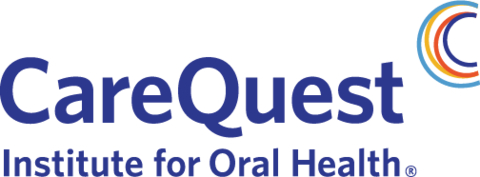New Report Finds Adults with ADHD Are at Greater Risk for Poor Oral Health
New Report Finds Adults with ADHD Are at Greater Risk for Poor Oral Health
CareQuest Institute Data Show Adults with ADHD Have Worse Oral Health Outcomes and Experiences
BOSTON--(BUSINESS WIRE)--A new report released today by CareQuest Institute for Oral Health® finds that adults with attention-deficit/hyperactivity disorder (ADHD) are at greater risk for poor oral health than adults without ADHD.
The data reveal that adults with ADHD rated their oral health as fair or poor (35.5%) and were embarrassed about the state of their oral health in greater numbers than those without ADHD (24.9%). They also reported visiting a dentist less often, but more often seeking dental care through an emergency department, compared to adults without ADHD. Those with ADHD also reported experiencing discrimination in the oral health care setting and experiencing high levels of dental anxiety in greater numbers than adults without ADHD.
These findings come from the third annual State of Oral Health Equity in America (SOHEA) survey, the largest nationally representative survey focused on adults’ attitudes, experiences, and behaviors related to oral health.
“These new data illustrate some of the many disparities that exist in oral health and the need to work toward a more accessible and equitable system,” said Leslie Carver, chief operating officer at CareQuest Institute. “While not all adults with ADHD have poor oral health, it is important for oral health professionals to be aware of the potential oral health challenges associated with ADHD and consult with their patients to help them achieve optimal oral health.”
Key findings include:
- More adults with ADHD report being embarrassed by their teeth or mouth very often, often, or occasionally compared to adults without ADHD (48.4% vs. 29.6%).
- More adults with ADHD (40.4%) report not having visited a dentist in more than a year compared to adults without ADHD (31.9%).
- More adults with ADHD report having visited an emergency department for dental care in the prior year compared to adults without ADHD (13.0% vs. 2.3%).
- A higher percentage of adults with ADHD report having experienced discrimination in an oral health care setting (11.7%) compared to adults without ADHD (7.0%).
About CareQuest Institute for Oral Health®
CareQuest Institute for Oral Health® is a national nonprofit championing a more equitable future where every person can reach their full potential through excellent health. We do this through our work in philanthropy, analytics and data insights, health transformation, policy and advocacy, and education as well as our leadership in dental benefits and innovation advancements. We collaborate with thought leaders, health care providers, patients, and local, state, and federal stakeholders, to accelerate oral health care transformation and create a system designed for everyone. To learn more, visit carequest.org and follow us on X/Twitter, LinkedIn, Facebook, and Instagram.
Contacts
Direct Media Inquiries to:
Sara Ward
sward@carequest.org
314-276-6727
